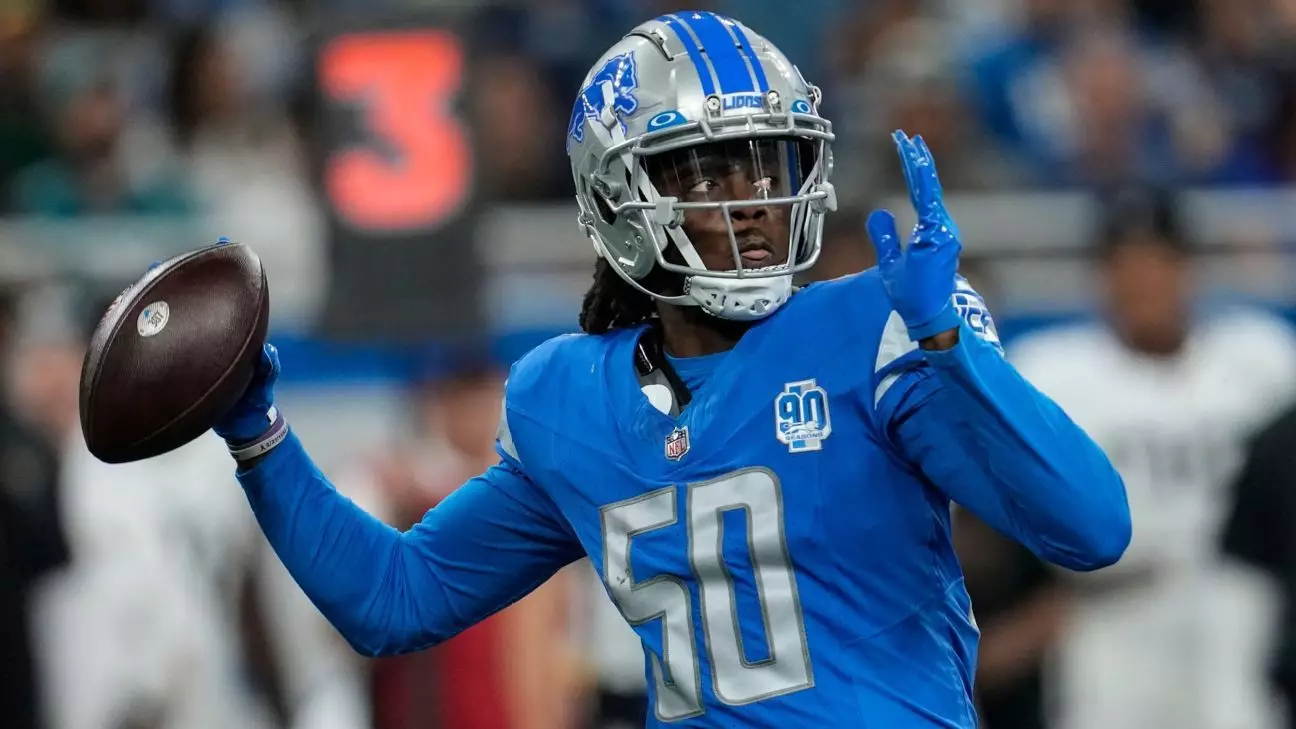In a league that constantly evolves, the return of veteran quarterback Teddy Bridgewater to the NFL landscape stirs a mix of skepticism and cautious optimism. At 32, Bridgewater’s career trajectory appears to have plateaued, with a recent stint as a backup and limited on-field action. Yet, his impending signing with the Tampa Bay Buccaneers signals something more profound—it reflects the league’s struggle to reconcile burgeoning talent with the enduring value of experience. For a league that prides itself on innovation, bringing back a player with a notably uneventful recent record raises questions about whether the NFL is truly advancing or merely clinging to familiar faces amidst a rapidly changing sports environment.
Often, sports narratives extol the virtues of youth, agility, and raw talent. But in doing so, they overlook the nuanced benefits that seasoned quarterbacks like Bridgewater can bring—leadership, mentorship, and stability during turbulent times. The decision to sign him might be viewed through a skeptical lens as an unnecessary relic of a bygone era, yet it underscores a pressing reality: NFL teams are increasingly recognizing the importance of veteran influence amid a competitive landscape. This move suggests that perhaps, in some instances, the league values wisdom and resilience over raw potential. It challenges the conventional wisdom that only young stars can elevate team performance, hinting at a more balanced approach that honors experience without disregarding innovation.
Realities of the Modern NFL: The Need for Depth and Reliability
The Buccaneers’ decision to bring in Bridgewater is also a practical reaction to the unpredictable nature of injuries in a high-stakes sport. With starting quarterback Baker Mayfield returning from injury and second-stringer Michael Pratt sidelined, Tampa’s quarterback room appeared fragile. Here lies a critical issue: the NFL’s unforgiving environment demands not only talent but also depth and adaptability. Relying solely on a young, unproven backup can be perilous, especially as teams navigate the league’s increasing physicality.
In this context, Bridgewater’s arrival can be interpreted as a pragmatic choice rooted in the league’s harsh realities. His career, marked by sporadic playing time, may seem underwhelming on paper, but his extensive experience and understanding of NFL defenses can be invaluable assets. Teams are often tempted to overlook older players in favor of youth, but the problem with that mindset is that it neglects the crucial necessity of reliability—something Bridgewater has consistently provided. His history of guiding teams with calm composure and veteran savvy might just be what the Buccaneers need to stabilize their quarterback situation and push for a competitive season.
Beyond the Field: A Reflection of Values and Community Engagement
Amid the relentless pursuit of athletic excellence, Bridgewater’s off-the-field story adds layers of complexity to his public persona. His recent suspension from coaching at Miami Northwestern for providing impermissible benefits—a controversial yet well-intentioned act of giving back—paints a picture of a man driven by community values and love for the sport. His efforts to support young athletes through financial assistance underscore the significance of athlete activism and community involvement in today’s sports culture.
This aspect of Bridgewater’s life prompts a reevaluation of how the league and its players are perceived beyond the gridiron. In an era where athletes are increasingly judged not just on performance but on their social and moral values, Bridgewater exemplifies the importance of integrity and community service. His actions reveal that sports figures can serve as positive role models, advocating for youth empowerment and community development. While critics might focus on the controversy, it’s undeniable that his intentions stem from a genuine desire to uplift others—an attribute that, if recognized, could elevate the narrative around veteran players like him in the modern NFL.
A Symbol of Resilience in an Ever-Changing League
Ultimately, Teddy Bridgewater’s impending signing with Tampa Bay symbolizes more than just a strategic roster move; it reflects a broader philosophical debate about aging, relevance, and the essence of resilience in professional sports. The NFL’s relentless pace often sidelines seasoned veterans, yet Bridgewater’s story challenges this trend by demonstrating that perseverance, adaptability, and a willingness to serve as a stabilizing force are equally vital assets.
The league’s future is undeniably rooted in innovation, with new analytics, training techniques, and youthful talent reshaping the game daily. Still, the enduring appeal of players like Bridgewater lies in their capacity to embody the relentless human spirit—overcoming doubts, setbacks, and evolving expectations. Whether this move proves to be a stroke of strategic genius or a nostalgic gamble, it undeniably sparks vital conversations about the values and priorities that define the sport today. As NFL teams grapple with balancing tradition and progress, Bridgewater’s story serves as a reminder that sometimes, experience and resilience remain the most powerful tools of all.

